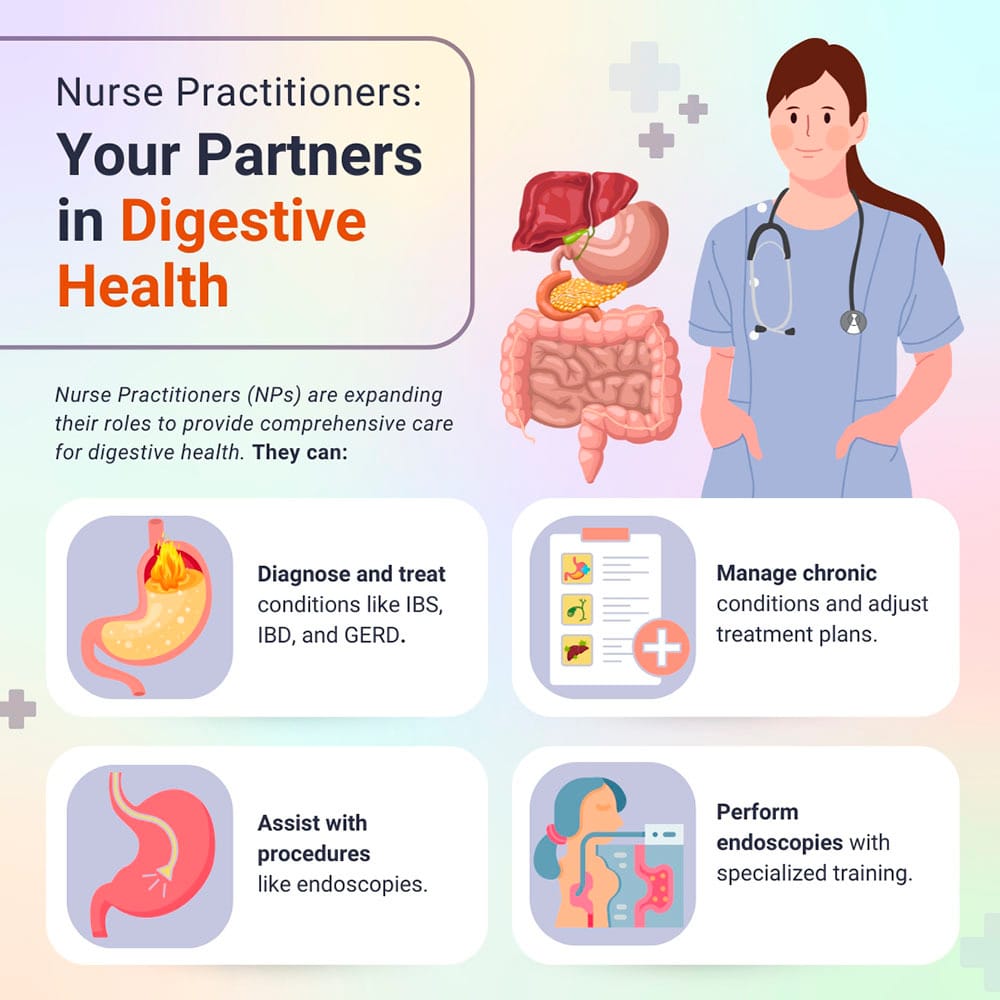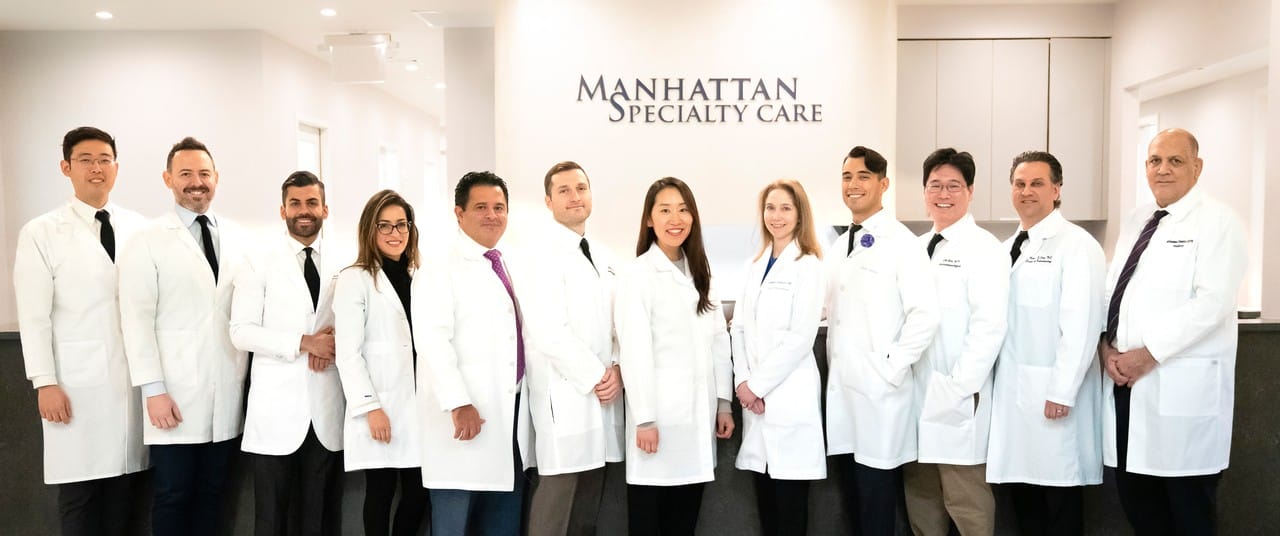Ever wondered if nurse practitioners (NPs) can dive into the world of gastroenterology? You’re not alone. The role of NPs has been expanding, and they’ve become vital players in healthcare, stepping into specialties like gastroenterology (GI) care with ease. Let’s break down what that looks like.
What is a GI NP?
GI Nurse Practitioners (GI NPs) are the go-to professionals for digestive system issues. They work hand-in-hand with doctors, focusing on everything from diagnosis to long-term care of gut-related problems.

What’s on Their To-Do List?
- Patient Check-Ups and Diagnoses: Whether it’s IBS, IBD, or GERD, GI NPs are all over it. They’ll take your health history, run the necessary tests, and map out your treatment plan.
- Handling Chronic Conditions: Got a long-term GI issue? They’re your partner in managing medications and treatments, making sure everything runs smoothly.
- Helping with Procedures: Some NPs even assist with, or in certain cases, perform procedures like colonoscopies. Yep, they’re pretty hands-on!
Can NPs Perform an Endoscopy?
Traditionally, endoscopies were the doctors’ turf, but times are changing. With proper training, NPs are proving they can handle these procedures effectively, especially where healthcare resources are stretched thin. In fact, a 2015 study by the National Institute of Health (NIH) revealed a powerful finding: non-physicians like Nurse Practitioners can perform endoscopies with outcomes just as effective as those achieved by physicians!
Why Let NPs Handle Endoscopies?
- More Access, Less Waiting: More NPs doing endoscopies means faster appointments for patients.
- Saving Money: It’s a cost-effective way to provide care, which is always a win in healthcare.
How Do Fellowships Help?
Specialized training through fellowships is where NPs really fine-tune their GI expertise. These programs cover everything from hospital rounds to hands-on procedural experience.
What’s In a Fellowship?
- Varied Rotations: They spend time in both inpatient and outpatient settings, dealing with a range of GI conditions.
- Procedure Practice: Fellows get real experience with endoscopies and other GI procedures.
- Teamwork: They work closely with doctors and other healthcare pros, learning the ins and outs of GI care.
Why Advocacy Matters
To keep pushing the boundaries of what NPs can do, advocacy is key. Groups like the American Association of Nurse Practitioners (AANP) and the Society of Gastroenterology Nurses and Associates (SGNA) are out there making waves.
What Are They Fighting For?
- Policy Changes: Expanding NPs’ ability to perform more procedures.
- Education and Training: Making sure NPs have access to top-notch learning opportunities.
- Research: Highlighting how much of a difference NPs make in patient care.
How Patients Benefit
Having NPs on the GI team means better, more accessible care. They focus on the whole patient, not just the symptoms, which leads to better outcomes.
Why Patients Love GI NPs

- All-In-One Care: They look after both your immediate and ongoing GI needs.
- Better Health Results: With NPs on board, patients tend to stick to their treatment plans and catch problems early.
- A Personal Touch: NPs often have more time to spend with patients, breaking down the medical jargon and just being there to support them.
Nurse practitioners are becoming indispensable in gastroenterology, offering skilled and compassionate care. As healthcare continues to evolve, the role of GI NPs is only going to grow.

